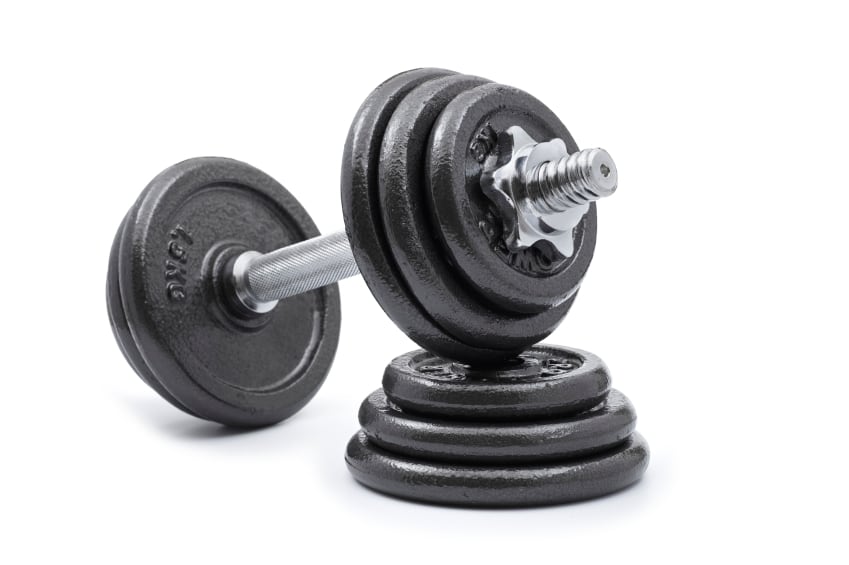Twelve weeks of resistance training and supplementation with either pea protein (Nutralys, Roquette) or whey produced similar results for bicep muscle thickness increases in a study with 161 men aged 18 to 35.
“The consumption of pea protein promotes gains in biceps brachii thickness and especially in beginners or people returning to weight training,” wrote the researchers in the Journal of the International Society of Sports Nutrition.
“This statistical superiority compared with the Placebo and the comparable results with those obtained for whey intake make pea protein an alternative to whey-based dietary products for athletes from different levels and sports. Such proteins should also be of interest in other populations such as elderly to slow down the aging process and maintain muscle mass.”
Allergen-free & amino acids
Pea protein isolates have been gaining in popularity among food manufacturers because it offers a clean label, allergen-free, and cost effective protein when compared to other proteins
In addition, the ingredient is attracting attention in the sports nutrition realm because of its amino acid profile: Pea protein is rich in lysine, arginine and branched chain amino acids. Indeed, pea protein is said to be the richest source of arginine (about 8.7% on a protein weight basis).
Arginine is considered a conditionally essential amino acid since it is rate-limiting for protein synthesis. It is involved in nitrogen metabolism, in growth and in cell division. Arginine is also a precursor of creatine.
Arginine intakes of 6-12g per day have been recommended for sports nutrition.
From sport to sarcopenia
Catherine LeFranc-Millot, DVM, PhD, Corporate Scientific Communications Manager / Nutrition Direction for Roquette, told NutraIngredients-USA that the results are a first step on the way to demonstrate that specific solutions for specific needs, such as sports nutrition, do not only exist in the field of animal proteins but also vegetable ones.
"Pea protein might be a potential alternative to whey-based dietary products for sports people; and with such results - a similar impact on muscle in other populations can be considered. For example, elderly people, who often suffer from sarcopenia, might perhaps benefit from an appropriate sports practice doubled with a specific adapted diet, and pea proteins isolates could be a component of it. It has to be tested," she said.
"Another essential point is the environmentally-friendly production process of our pea proteins, which is a key point in our current ecological context worldwide. In addition, the 'non allergenic' and 'GMO-free' characteristics of our pea proteins make the difference on the global market of vegetable proteins.
"Taking all these positive facts together and our on-going technological and functional developments (plant-based protein growing range), today one can easily position pea proteins at a very promising stage of development."
Study details

The new study used 25 gram doses of protein (whey or pea) twice a day for 12 weeks. The researchers recruited 161 young men to participate in their double-blind, randomized, placebo-controlled clinical trial. The men were randomly assigned to one of three groups: Whey protein, pea protein, or placebo and all undertook 12 weeks of resistance training.
Results indicated that all groups benefited from the resistance training, with the no overall significant differences between the groups. However, when the researchers focused only on the weakest participants in each group, a significant effect between pea protein groups and placebo was observed, with increases of 20.2% and 8.6%, respectively. The whey protein group experienced average increases of 15.6%, but the difference between whey and pea did not reach statistical significance.
“Since no difference was obtained between the two protein groups, vegetable pea proteins could be used as an alternative to whey-based dietary products,” wrote the researchers.
The researchers also reported that muscle strength increased with time across the groups, but there was no statistical difference between groups.
Protein digestion
“The lack of statistical difference between Nutralys and whey may be attributed to the quite similar amino acids content but also to the kinetic of digestion,” they explained.
“Whey protein has a fast kinetic of digestion, bringing rapidly high concentration of amino-acids in plasma after ingestion, but this effect is transient and returns to resting levels within 2-3 hours. Nutralys is an intermediate profile fast protein (unpublished observations) and it can be assumed that the amino acid content in blood plasma would increase quickly after ingestion, making it readily and long lastingly available in the body to participate in muscle protein synthesis.”
Source: Journal of the International Society of Sports Nutrition
2015, 12:3, doi: 10.1186/s12970-014-0064-5
“Pea proteins oral supplementation promotes muscle thickness gains during resistance training: a double-blind, randomized, Placebo-controlled clinical trial vs. Whey protein”
Authors: N. Babault, C. Païzis, G. Deley, et al.

